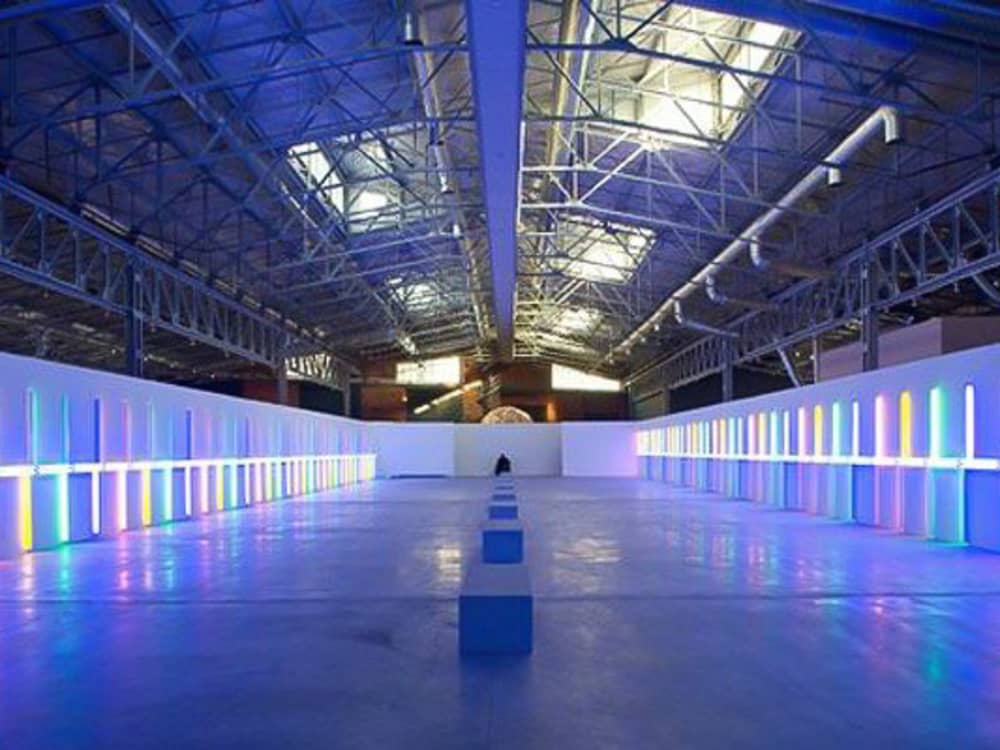from outlaws to occupiers
Born to run: Menil explores five-decade career of acclaimed photographer DannyLyon
 Danny Lyon, SNCC Workers Outside Funeral, The Menil Collection, HoustonPhoto by © 2012 Danny Lyon/Magnum Photos
Danny Lyon, SNCC Workers Outside Funeral, The Menil Collection, HoustonPhoto by © 2012 Danny Lyon/Magnum Photos Danny Lyon, Crossing the Ohio, Louisville 1966, The Menil Collection, Houston,gift of Kenneth G. FutterPhoto by © 2012 Danny Lyon/Magnum Photos
Danny Lyon, Crossing the Ohio, Louisville 1966, The Menil Collection, Houston,gift of Kenneth G. FutterPhoto by © 2012 Danny Lyon/Magnum Photos Danny Lyon, Clarksdale, Mississippi Police, The Menil Collection, Houston, giftof Edmund Carpenter and Adelaide de MenilPhoto by © 2012 Danny Lyon/Magnum Photos
Danny Lyon, Clarksdale, Mississippi Police, The Menil Collection, Houston, giftof Edmund Carpenter and Adelaide de MenilPhoto by © 2012 Danny Lyon/Magnum Photos Danny Lyon, Walls Unit Yard (Raymond Jackson, robbery), The Menil Collection,Houston, gift of Edmund Carpenter and Adelaide de MenilPhoto by © 2012 Danny Lyon/Magnum Photos
Danny Lyon, Walls Unit Yard (Raymond Jackson, robbery), The Menil Collection,Houston, gift of Edmund Carpenter and Adelaide de MenilPhoto by © 2012 Danny Lyon/Magnum Photos Danny Lyon, Rachel in Texas (Robert Frank, Wavy Gravy, Paula Cooper, DannySeymour) 1969Photo by © 2012 Danny Lyon/Magnum Photos
Danny Lyon, Rachel in Texas (Robert Frank, Wavy Gravy, Paula Cooper, DannySeymour) 1969Photo by © 2012 Danny Lyon/Magnum Photos
In the late 1960s, photographer Danny Lyon finally found a way — using his own words — "to destroy Life magazine." After working as the official photographer for the Student Non-Violent Coordinating Committee (SNCC) at the height of the civil rights movement, Lyon shifted his focus to the notorious Chicago Outlaws, a rebel motorcycle club with whom he rode for nearly five years.
"I'll be honest, the Chicago groups were not nearly as violent as they were in Milwaukee," Lyon said at a preview of his new retrospective The World Is Not My Home at the Menil Collection. The comment was directed with a wink towards tour leader Toby Kamps, the show's curator and native Milwaukeean.
"We had a rule to sleep outside if we were going to party up there," he laughed. "You never knew if the house would get burned down."
"For me, journalism was always about having your own brain and your own identity," Lyon explained. "I was always so into that idea that I never really worked for anyone."
Lyon's work with the Chicago Outlaws evolved into his first book, The Bikeriders, a now-famous collection of photos that served as a type of visual answer to the imbedded journalism of writers like Tom Wolfe and Hunter Thompson.
After documenting the massive demolition of the 19th-century warehouses and tenements upon which the World Trade Center would be built, Lyon found himself in Galveston after a biker friend suggested he check out the island's shrimp boats and motorcycle culture. Instead, he found a small community of young African-American transvestites.
"I photographed and tape-recorded them all, but nobody would touch the stuff then," he remembered, motioning to a 1967 double portrait titled Rene with Roberta. "Now we're in a much freer world."
Like many artists who made their way to the Houston area in the late 1960s, Lyon crossed paths with the de Menils, who provided moral and, occasionally, financial support for the photographer as he began work on Conversations with the Dead, a photographic look at the Texas penal system.
"For me, journalism was always about having your own brain and your own identity," Lyon, who recently turned 70, explained. "I was always so into that idea that I never really worked for anyone." While most photojournalists support themselves with paid assignments, Lyon always paid his own expenses and sold work at his own discretion. "No one had ever helped me until I met Mrs. de Menil," he said.
"I did this prison project because I really thought I could destroy the prison system — make people aware of it and mitigating it," he noted, adding how disheartened he is to see that the state's prisons have swelled from 12,000 inmates at the time of his research to about 200,000 in 2012.
It's this degree of consciousness instilled in Lyon's work that makes his classic photographs from the civil rights movement and the Texas penal system feel as charged and relevant as recent images like 2011's Men Drying Clothes, Bernalilio, NM as well as his work on the occupy movement.
This World Is Not My Home: Danny Lyon Photographs is on view at the Menil Friday through July 29, as a participating gallery with the 2012 FotoFest Biennial. An opening night reception is Thursday at 7 p.m.

